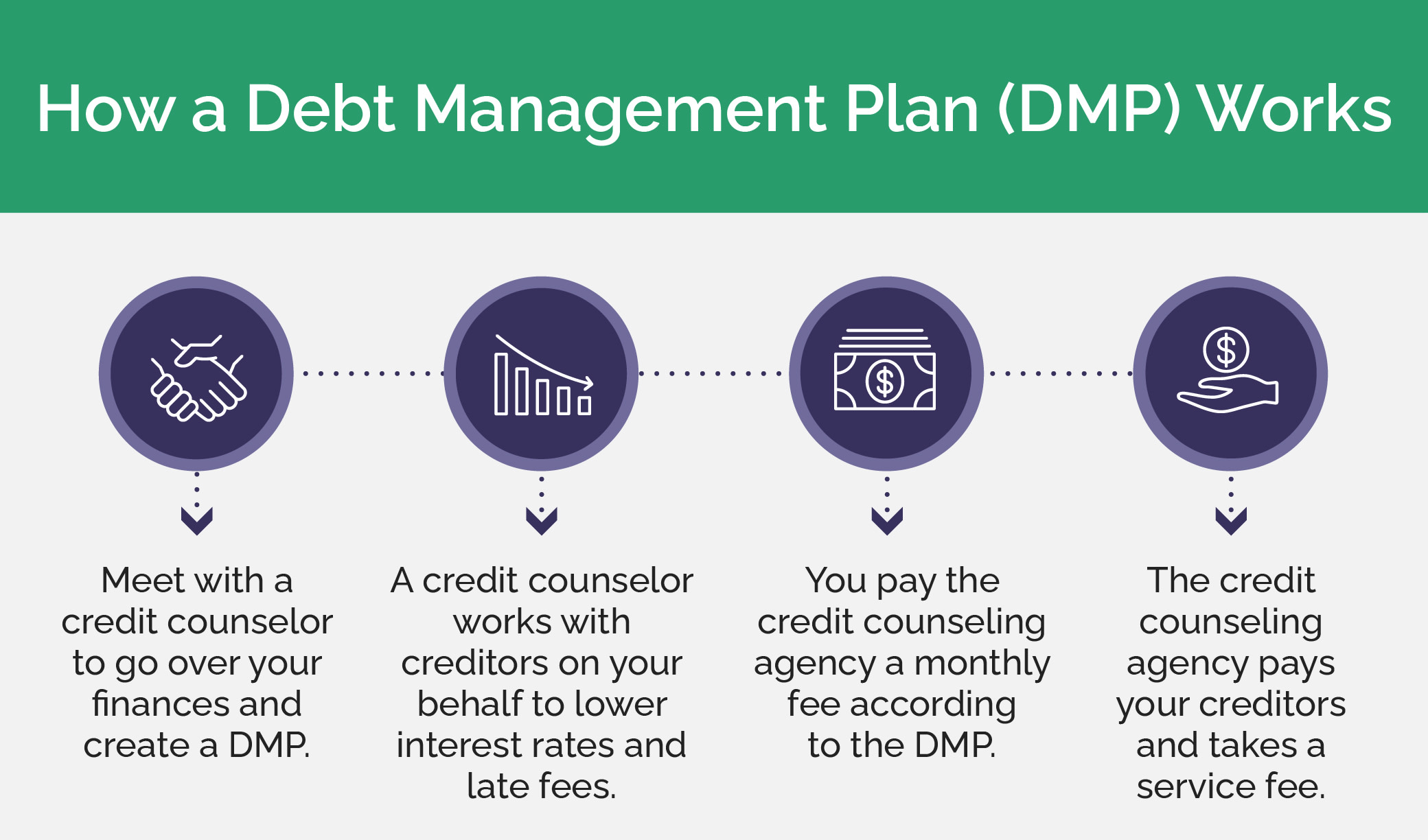Maximize Your Financial Prospective with Professional Debt Management Plan Services
Maximize Your Financial Prospective with Professional Debt Management Plan Services
Blog Article
Comprehending the Significance of a Well-Structured Financial Debt Monitoring Strategy for Financial Security
In the realm of individual financing, the relevance of maintaining a well-structured debt administration plan can not be underrated. It acts as a cornerstone for accomplishing and sustaining financial stability, yet its value usually continues to be ignored or taken too lightly. As individuals browse the intricacies of handling their financial commitments, a strategic method to financial debt management can lead the way for an extra thriving and protected future. By understanding the basic principles and useful methods behind effective financial obligation monitoring, individuals can open the course to not only decreasing debt problems but also cultivating a solid foundation for long-term economic well-being.
The Influence of Financial Debt on Financial Stability

Moreover, the impact of debt on financial security expands beyond simply the monetary facets. It can likewise impact psychological health, relationships, and overall wellness. The stress and anxiety and anxiousness connected with frustrating financial debt can prevent decision-making capacities and stress personal and professional connections.
For that reason, it is important for companies and individuals to very carefully manage their financial obligation levels, ensuring that it aligns with their economic goals and capabilities. By understanding the effects of financial debt on monetary stability and implementing reliable financial obligation management people, methods and organizations can safeguard a more thriving and secure financial future.
Components of a Reliable Debt Administration Strategy
Provided the critical relevance of maintaining economic security among varying financial debt levels, comprehending the important parts of an effective debt administration plan is paramount for individuals and companies alike. A detailed financial obligation management plan usually includes a complete assessment of current financial debts, revenue, and expenditures to establish a clear monetary picture. Establishing possible and specific monetary objectives is crucial in directing the financial obligation payment procedure. Focusing on financial debts based upon rate of interest, with a concentrate on repaying high-interest financial debts initially, can conserve cash over time. Creating a comprehensive budget that assigns funds for financial obligation payment while still covering necessary costs is essential. Discussing with lenders for reduced rates of interest or revised repayment strategies can likewise belong to an efficient financial debt management method. Furthermore, establishing a reserve to avoid building up even more financial debt in case of unforeseen costs is a prudent element of an all-around financial debt management plan. Routinely keeping track of and adjusting the plan as required ensures its effectiveness in attaining monetary stability.
Benefits of Applying a Financial Debt Payment Method

Tips for Developing a Lasting Budget
Building a solid monetary foundation starts with mastering the art of developing a lasting budget plan that straightens with your long-term economic objectives and enhances your financial debt settlement strategy. Set realistic investing limits for each group, ensuring that your necessary expenditures are covered while leaving space for cost savings and debt settlements.
Furthermore, take into consideration using budgeting devices and apps to simplify the process and keep yourself accountable. Consistently evaluation and readjust your budget as needed, specifically when encountered with unforeseen costs or modifications in income. Bear in mind to allot a portion of your spending plan towards constructing an emergency situation fund to cover unexpected economic challenges. By complying with these tips and staying disciplined in your budgeting strategy, you can produce a sustainable monetary strategy that supports your long-lasting objectives and assists you attain lasting monetary stability.
Monitoring and Readjusting Your Financial Obligation Monitoring Strategy
Routinely analyzing and adjusting your financial obligation management plan is crucial for keeping monetary development and achieving debt settlement objectives. Monitoring your financial obligation administration plan involves tracking your earnings, site link expenditures, and financial debt balances to make sure that you are remaining on track with your monetary purposes (debt management plan services). By consistently assessing your plan, you can identify any type of locations that might need adjustment, such as cutting back on unneeded expenditures or raising your debt repayments
Adjusting your financial debt administration strategy might be necessary as your economic scenario evolves. Life adjustments, such as a job loss or unexpected expenditures, might require you to reassess your strategy and make adjustments to accommodate these brand-new scenarios. In addition, as you pay for your financial debt, you may find that you have extra funds available to allot in the direction of debt payment or financial savings.

Conclusion
To conclude, a well-structured financial obligation management strategy is important for keeping financial security. By understanding the influence of debt, implementing a settlement technique, developing a sustainable budget, and surveillance and adjusting the strategy as needed, people can take control of their monetary situation and work in the direction of a debt-free future. It is important to prioritize economic health and make notified choices to secure a stable and flourishing economic future.
By understanding the basic principles and functional strategies behind effective financial debt management, people can try this web-site open the course to not only lowering debt problems yet also cultivating a strong foundation for long-term financial wellness.
Offered the vital relevance of maintaining financial stability among varying debt levels, understanding the crucial components of an efficient financial debt monitoring strategy is critical for companies and people alike. A comprehensive financial obligation administration strategy normally consists of an extensive analysis of present financial debts, earnings, and expenses to develop a clear economic image - debt management plan services.Regularly assessing and adapting your financial obligation administration plan is important for keeping economic progression and accomplishing financial obligation payment goals. Checking your financial obligation management strategy entails maintaining track of your revenue, costs, and debt balances to make sure that you are staying on track with your financial purposes
Report this page